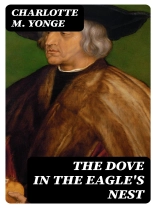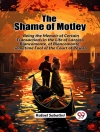In ‘The Dove in the Eagle’s Nest, ‘ Charlotte M. Yonge crafts a richly woven narrative set against the backdrop of the 19th-century English society, interlacing themes of faith, personal struggle, and the quest for identity. Yonge employs a vivid, almost lyrical prose style that engages readers, deftly capturing the inner lives of her characters while drawing on the traditional moralistic tone prevalent in Victorian literature. The juxtaposition of idealism and reality serves as a vehicle for her exploration of women’s roles, education, and spirituality within a rapidly changing world, exemplifying the rich texture of Yonge’s writing and her capacity for deep character development. Charlotte M. Yonge was a prominent Victorian author, known for her advocacy of female education and social reform. Raised in an environment steeped in evangelical values, Yonge’s personal experiences and beliefs profoundly influenced her literary aspirations. Her dedication to illuminating the lives of women, alongside her own struggles, inform the narrative of ‘The Dove in the Eagle’s Nest, ‘ making her characters resonate with authenticity and depth. Readers who seek a compelling blend of moral inquiry and emotional depth will find ‘The Dove in the Eagle’s Nest’ an enriching experience. Yonge’s ability to portray the nuanced struggles of her protagonists makes this novel a timeless classic that continues to speak to contemporary themes of self-discovery and resilience.
Yazar hakkında
Charlotte Mary Yonge (1823-1901) was an English novelist, known for her forays into historical fiction and for her commitment to the High Church movement of the Anglican Church. Her literary endeavors were profoundly influenced by her mentor John Keble, a leader of the Oxford Movement which aimed to reinvigorate the Church’s spiritual richness. Yonge’s literary style is characterized by its didacticism and adherence to the principles of Christian piety and morality. She often incorporated themes of duty, domesticity, and the righteousness of authority figures in her works. Her novel ‘The Dove in the Eagle’s Nest’ is a quintessential representation of her narrative ethos, delving into the historical backdrop of 15th-century Germany to portray tales of chivalry and virtue. Throughout her career, Yonge remained prolific, penning over 100 works including the notable ‘The Heir of Redclyffe’ (1853), which garnered widespread acclaim and bolstered her status as a novelist. Her work melded acute character studies with expansive historical canvases, capturing the Victorian readership’s imagination. A testament to her influential role in British literature, Yonge’s writings continue to inspire studies in Victorian culture and literary scholarship, with her pious characters and tales of moral fortitude remaining potent subjects of academic discourse.












